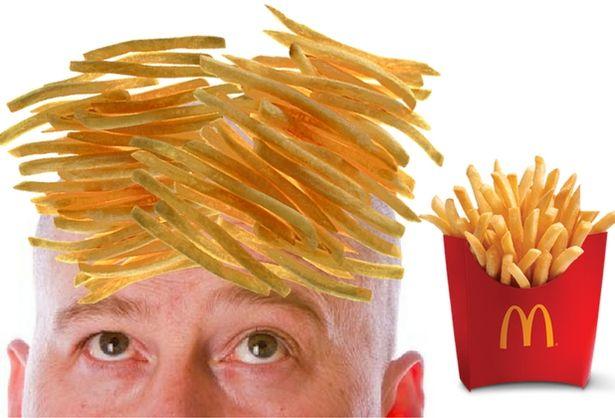
Image c/o: worldwide interweb
There has been a lot of news recently circulating the web about a new way to help you grow your hair back; eating McDonald’s French fries. This theory is based on the findings of Professor, Junji Fukada of Yokohama University in Japan. Fukada and his team of researchers have studied the form of silicone called “dimethylpolysiloxane” that is used in frying oil at McDonalds to reduce frothing.
Fukada and his team of scientists developed a method for large-scale preparation of hair follicle germs (HFGs), the reproductive source of hair follicles that grow and maintain the hair, in vitro (out of the body). They used self-organization of cells by mixing mouse epidermal (skin) cells and mouse/human mesenchymal (pluripotent connective tissue) cells and seeded them in micro-wells (single-cell cultures). Over the 3-day culture period the cells showed typical HFG features; they first formed a randomly distributed single-cell mass and then they separated from each other. These self-sorted Hair Follicle Germs, known as ssHFGs, were capable of generating shaft and hair-follicles when transplanted under the skin in the backs of nude mice. This finding paved way for the preparation of about 5,000 ssHFGs in a micro-well tool made up of oxygen-permeable silicone. This showed that the oxygen supply through the bottom was needed to enable both the formation of ssHFG and hair shaft generation.
These researchers have been successful in mass-preparing thousands of HFGs which concluded that dimethylpolysiloxane can create the vessels where HTGs could grow, but that this alone cannot stimulate hair growth.
An article in Huffington Post debunks the hair loss treatment circulating the web. Huffington Post’s article “Sorry, McDonald’s French Fries Won’t Actually Cure Your Baldness” stated that ingesting McDonald’s fries or any other of their fried foods “will have no effect whatsoever” on your hair growth.
Posted by




